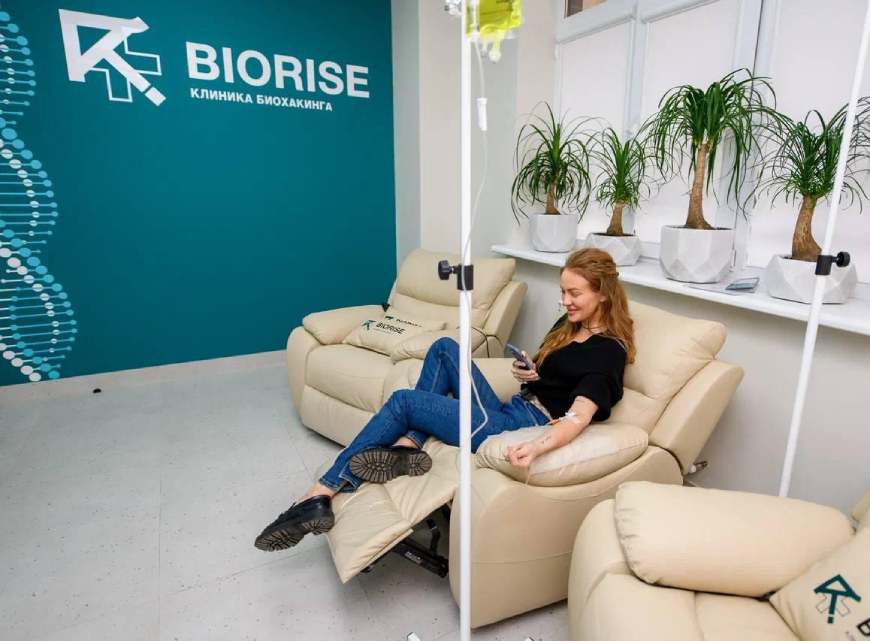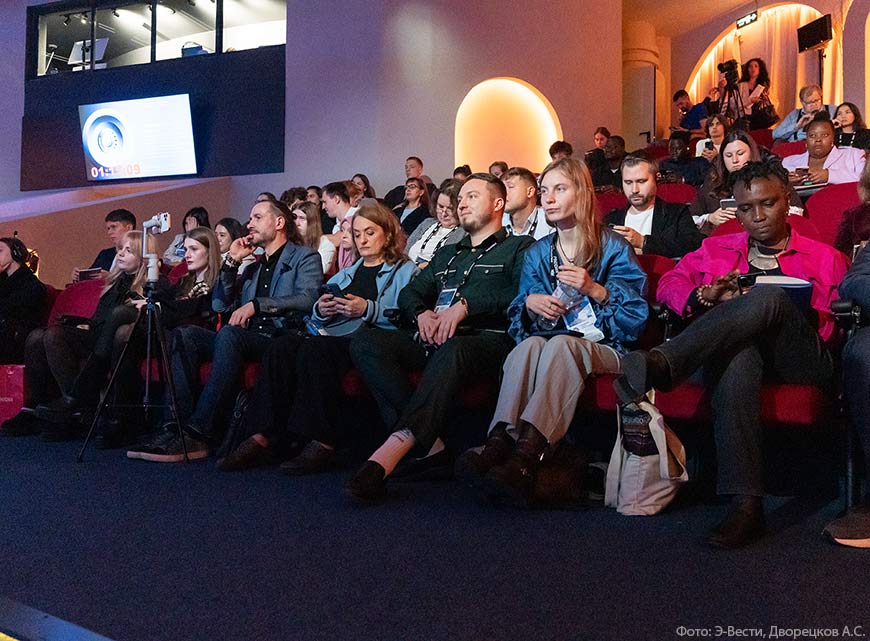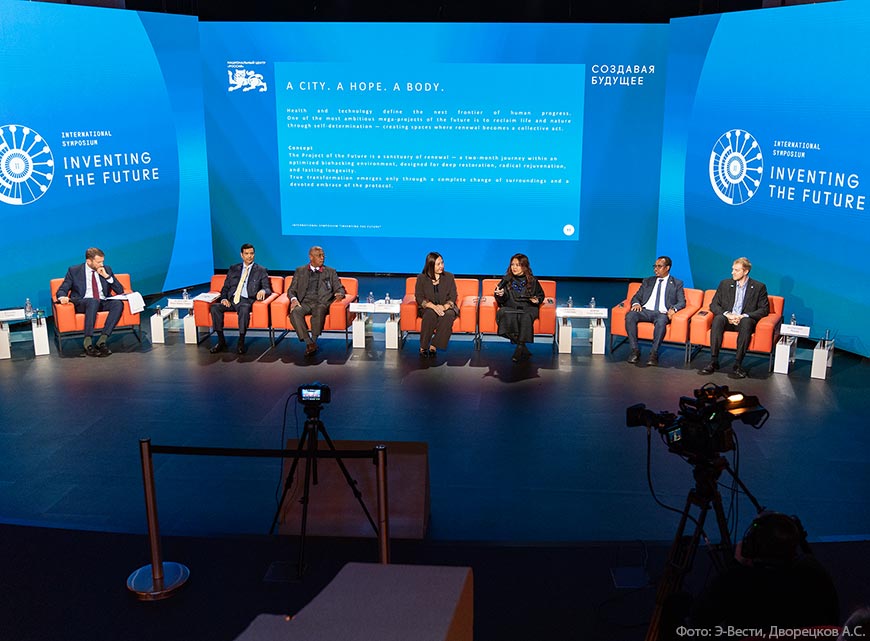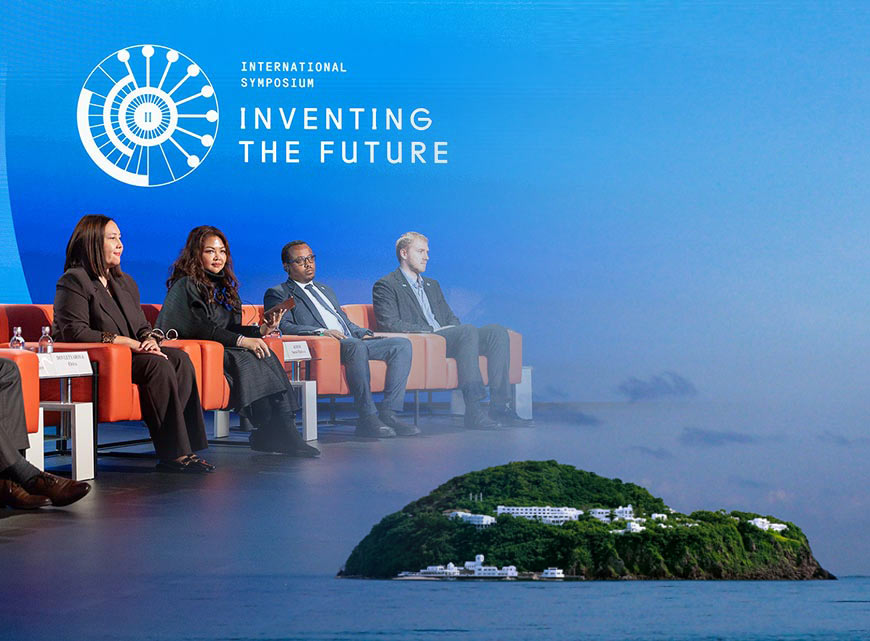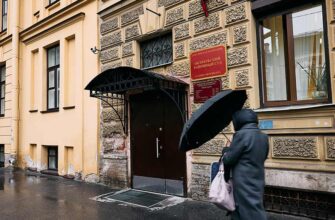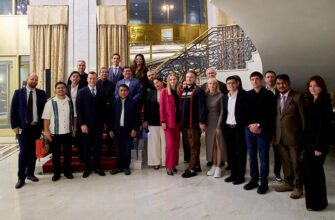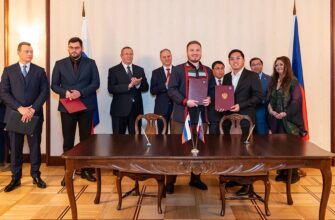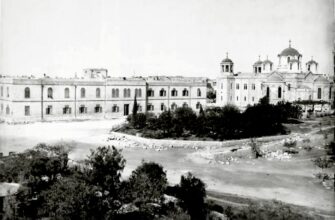Today, it is not the Global South that shapes our common future with Russia, but rather all of us together constitute the Global Majority. This term was brought up for discussion at the 2nd International Symposium “Shaping the Future” by Dr. Christina Amor Maclang, co-founder of ASEAN.IO and a recognized leader in the digital economy with active programs in ASEAN, Africa, and Central Asia. The term was immediately supported by representatives of science, business, and international organizations, and became the driver of the panel discussion “The Image of a Shared Future for Russia and the Global South in Mega-Projects.”
The event opened up unprecedented opportunities for collaboration among the Global Majority. Russia and other countries are exploring the possibility of implementing technologies that could allow people to live to 150 years.
The moderator of the discussion, Vladimir Ilyanin—Managing Director for Business Development in Sub-Saharan Africa at Sberbank PJSC—urged recognition of the current era, in which humanity’s needs in energy, transport, the agro-industrial sector, digital technologies, education, and medicine generate effects that transform not single sectors, but create entire digital clusters and transport corridors.
“Cities are becoming the drivers of a new era of consumption, and their growth will require large-scale projects and investment,” he said.
Which megaprojects will serve the people of the Global Majority and Russia? Each speaker focused on the unique features and needs of their region that could form the basis for such megaprojects.
The Secretary-General of the Asia Cooperation Dialogue (Kuwait), Nasser Al-Mutairi, called for joint action on climate change and cyber threats; Amarkuay Armar, Chair of the Board of First Atlantic Bank, emphasized creating a unified energy space; Samuel Rahimeto Kebede, Director of the AI Technologies for Linguistics division at the Ethiopian Institute of Artificial Intelligence, highlighted breakthrough language-model technologies; Maxim Kuznetsov—Director of the Agrarian and Technological Institute at RUDN University (Patrice Lumumba) and Director of Strategic Development and Partnerships at the AIRI Institute of Artificial Intelligence—spoke about digital medicine; and Professor Elvira Dovletyarova noted that university cooperation today can unite the Global Majority culturally, technologically, and politically.
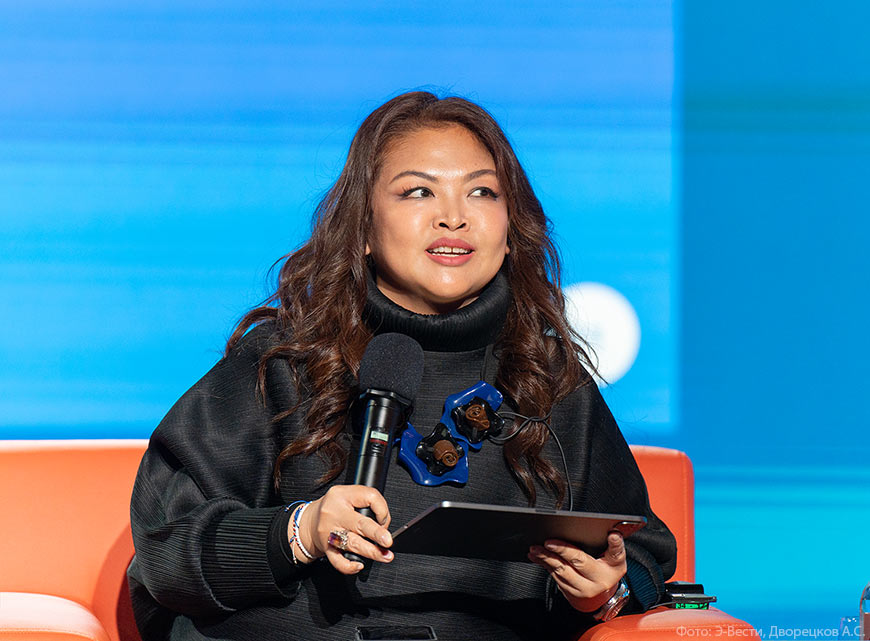
ASEAN.IO Managing Partner, Dr. H.C. Cristina Amor Maclang, proposed creating a unified space in which digital transformation is centered on the human being, giving people real access to the latest scientific advances in longevity.
“The megaprojects of the future are not just steel and big data; they are about the very life force of the human being,” said Dr. H.C. Cristina Amor Maclang. “It is about creating a system that protects people and extends their lives. We propose linking Russia and the Global South into a shared future where technologies heal, unite, and sustain human health.”
“Shared energy and transport infrastructure, joint efforts to combat climate change, and the easing of educational and linguistic exchange are all excellent and will help solve the problems of every country in the Global South. But a representative from the Asia-Pacific region is convinced that it is time to consider not only what Russia can offer the Global South, but also how the Global South can be useful to Russia.”
In particular, the megaproject “BioT — the Biohacking of Things” could provide urban residents around the world with healthy longevity. Do you remember the sensational statement by V. V. Putin and Xi Jinping on the sidelines of the military parade in Beijing on September 3, 2025, which went viral? It concerned achieving a human lifespan of 150 years within the 21st century!

“Preventive medicine has become one of Russia’s priority sectors—this is reflected in President Putin’s 2024 decree,” emphasized Kamil Vildanov, the Russia-based partner of the “BioT — Biohacking of Things” project. “The goal of our cooperation is to integrate the best methods for extending people’s period of active longevity, using the most advanced technologies we have gathered from around the world. We have already implemented a number of such tools, and through partnership we can not only scale up but also jointly achieve an increase in active longevity in the near future.”
Thanks to digital technologies and medical science, the dream of longevity is becoming a reality. BioT is a combination of the Internet of Things, artificial intelligence, bioscanning technologies, intravenous and intramuscular injections, and other forms of biohacking (preventive, personalized) technologies that reflect the Global Majority’s aspiration to better health for all.
“Today we have the ability to equip hotel rooms and virtually any facility with everything needed for near-continuous health improvement,” said Dr. H.C. Cristina Amor Maclang. “Biohacking of Things can help people recover after COVID, support weight loss, enable athletic performance, enhance cognitive abilities, and allow people to live full, healthy lives despite the negative impacts of stress and climate change.”
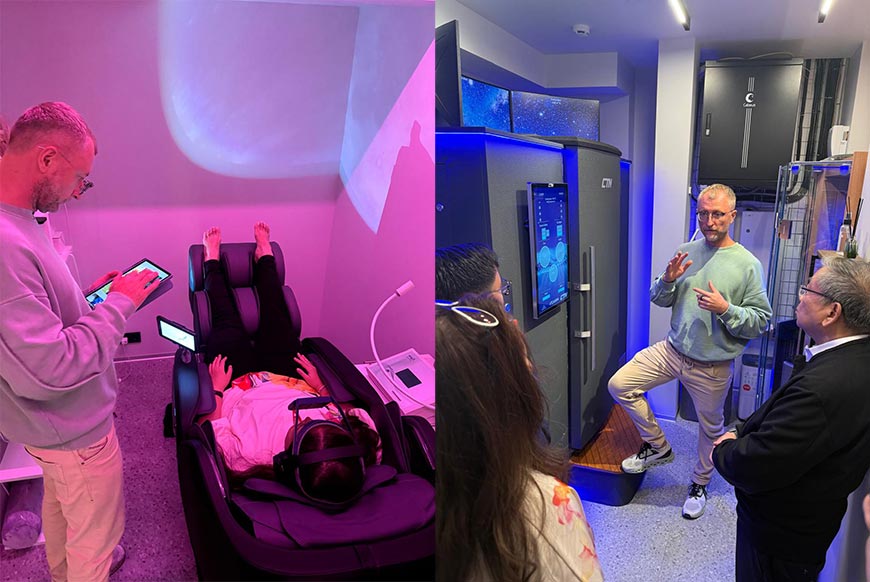
In the context of an aging population, improving public health opens a path to national economic growth and social well-being, where an “island of longevity” could serve as a prototype of a global center for wellness, longevity, and sustainable development—integrating biohacking infrastructure, AI-based health monitoring, and sustainable tourism.
“The core BioT technology will soon be implemented through the Skin Station partner program in the Philippines and, in Russia, through the partners Biorise and VIVION, pioneers of biohacking.
This model can easily become a scalable practice. In particular, a joint Russia–Global Majority project in Biohacking of Things based on BioT could provide urban residents with healthy longevity.”
“The gradually emerging Russia–UAE–Philippines space—where technology and medical science will achieve the highest quality of human life—will expand and help extend human life expectancy to 150 years.”
Thousands of people in Russia are already investing in their own longevity, which shows how eagerly Russians are awaiting such megaprojects, explained to the editors another Russian partner of “BioT — Biohacking of Things,” Dmitry Shabanov. “In the world of the future, living spaces and the urban environment will cease to be mere ‘concrete boxes’—they will be created around human biology. We will enter an era when homes and streets ‘understand’ us: embedded sensors, wearable electronics, and monitoring systems will passively track our biomarkers—stress levels, sleep quality, circulation, hydration, and other parameters—in real time, without any extra effort on our part. This future is not a fantasy: even today, projects are emerging in Russia that are laying the first building blocks of an ecosystem that will later spread to key regions of the world, one of which is undoubtedly Southeast Asia.”
The participants of the panel discussion “A Vision of a Shared Future for Russia and the Global South in Megaprojects” discussed how global challenges can be overcome through joint efforts.
“Preserving people’s health and extending longevity is perhaps the most serious challenge of our time that the Global Majority must overcome. The fastest and most effective way to do this is through digital technologies.”
“V. Putin said the following about the priority areas of Russian science: ‘One of the priorities of our work in science is the preservation of the population —everything related to the length and quality of life: genetics, biology, and bioengineering.’”
